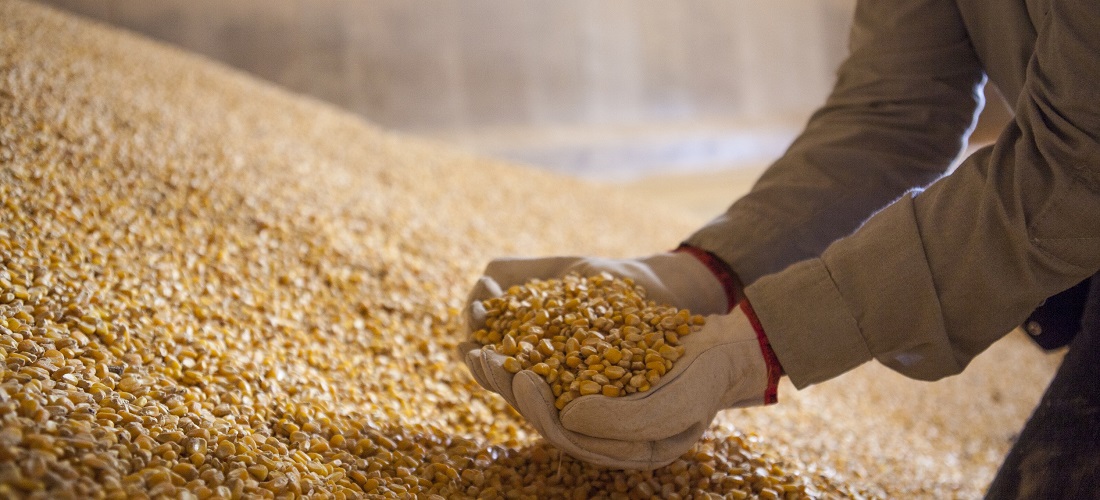
Poultry farmers in Brazil complain about corn import delays
Jul, 12, 2022 Posted by Gabriel MalheirosWeek 202228
Corn delays observed at the customs post between Brazil and Paraguay have been a cause of concern for players in the animal protein market.
The delay of trucks, stuck in waiting queues caused by the work-to-rule operation spearheaded by Federal Revenue workers, has been causing financial losses and inconveniences to poultry farmers in Paraná state and the rest of Brazil’s southern region.
Brazil, which at the moment is reaping good results from corn’s second crop, mainly relies on the foreign market for grain supply since the war between Ukraine and Russia favored external sales.
See below the comparison of the total volume of corn imported in the first five months of the year in 2021 and 2022. The data below is from DataLiner.
Corn Imports (YTD) | Jan 2021 – May 2021 vs. Jan 2022 – May 2022 | WTMT
Source: DataLiner (click here to request a demo)
According to Irineo da Costa Rodrigues, the president of Sindiavipar, a union that represents industries in the poultry sector in the state of Paraná, grains in Brazil are being increasingly redirected to ethanol production and export. “That’s why we rely on supplies from Paraguay,” he said.
The maize imported from Paraguay not only feeds the national production chain, allowing Brazil to gain space in exports but also offers reduced pricing, allowing the poultry sector, the economic activity that most consumes imported grains, to cut production costs and help inflation control. Thus, entities like Sindiavipar warn about the need to remove import bottlenecks and ensure commercial flow agility.
Rodrigues also highlighted that the slowness in the transfer impacted the business’s trustworthiness. “Although Paraguay is harvesting corn and wants to sign contracts with consumers, there is apprehension about going into future sales contracts with Brazil since the neighboring country is unsure about its capacity to move grain promptly. We’ve already heard incidents of vehicles being held up for 12 days in line.”
Audience with the Federal Government
Sindiavipar participated in a series of hearings in Brasília to discuss the current obstacles in Brazilian customs causing corn delays.
The meetings were held with the Minister of Economy, Paulo Guedes, with the Minister of Agriculture, Livestock and Supply (Mapa), Marcos Montes, and with the Special Secretary of the Federal Revenue, Julio Cesar Vieira, accompanied by the president of the Association of Commerce and Businesses of Foz do Iguaçu, Danilo Vendruscolo, business people Mário Camargo and José Marcos Sarabia and federal deputy, Vermelho.
According to Rodrigues, the situation caused perplexity in the authorities, who promised to take action. “They were very attentive to the poultry industry in Paraná and the southern states. However, we need agility at the post between Foz do Iguaçu and Ciudad del Este.”
The president of Sindiavipar believes that, with this audience, the government will begin closely monitoring the flow of goods at the border. Rodrigues stresses that paying attention to the customs facilities all over Brazil is important since border posts like those with Uruguay and Argentina go through similar difficulties.
“We hope to get a good enough impact out of this. We hope that the government and the responsible ministries will keep an eye on the flow of commodities at the border. Sindiavipar, as a representative organization, has the duty of understanding these subjects and pointing to possible solutions. That’s what we have done,” concludes Rodrigues.
Source: Canal Rural
To read the full original article, please go to: https://www.canalrural.com.br/noticias/pecuaria/avicultores-reclamam-da-demora-na-importacao-de-milho-nas-aduanas/
-
Fruit
Aug, 23, 2022
0
World’s largest melon exporter chooses Mucuripe as outlet
-
Ports and Terminals
Feb, 01, 2024
0
Itaqui Port welcomes Japanese ambassador in talks for new investments
-
Meat
Oct, 06, 2022
0
Brazil sets beef export record in September, says industry association
-
Meat
Feb, 23, 2022
0
Brazil has great potential in tilapia exports

